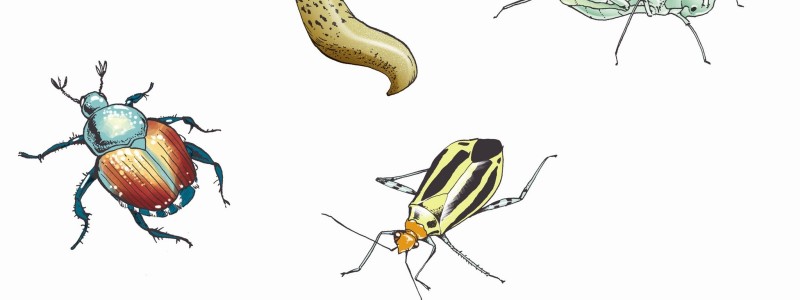All gardeners at one time or another have lovingly cultured a garden only to have it succumb to the ravages of pest and/or disease. But before we reach for the chemical sprays take into account a few simple things that will make a massive difference in diminishing or eradicating unwanted pest and disease.
First and foremost – A functioning garden design that takes in account: airflow, sun tracks, wind tracks, shadows from larger surrounding structures and trees, irrigation options and useability.
- Adequate airflow throughout the garden.
- Adequate sunshine (morning sun and then at least 6 hrs).
- Minimal soil disturbance and compaction – make designated walkways and stick to them.
- Wise water distribution and application practices. Water in the morning preferably. This will hydrate the plants for the duration of the day and will decrease the chances of bacterial and fungal issues. Water only around the plants roots and not over the foliage. If you water over the foliage you can encourage bacterial spot to prosper etc. Water deeply not just a light little spray. This will encourage plant roots to dive deeper into the soil. Wet leaves does not mean wet soil.
- Great soil nutrition – practice crop rotation and supply adequate macro and micro elements.
- Companion planting to discourage unwanted insects and attract BENEFICIAL INSECTS.
The NASAA Organic Standard (December 2004) defines organic agriculture as “a holistic system built upon natural ecological processes”. These ecological processes include the biological activities of all organisms living within the soil as well as those living above the soil surface. Of all such organisms, of which there are many tens of thousands of different types, only a relatively small number cause problems in our crops. In fact, most are beneficial and some are essential to the health of most plants. Consequently, we need to be mindful of the disturbance to the overall ecological balance of organisms living within our garden caused by the use of sprays or other methods to control pests and diseases. After all, it is the maintenance of that ecological balance which is the key to a productive organic garden.
Reference: http://www.nasaa.com.au/data/pdfs/AAAA%20NASAA%20Organic%20Standard%2006-02-2012.pdf
All too often the heavy handed use of either chemical or organically certified products can ultimately result in more harm being done then good. Some sprays are indiscriminate and will kill ALL garden pests, good and bad alike, just as other organically accepted products can upset the vital balance between beneficial bacteria and fungus’s present within the soil. Try to choose sprays that target select insects/diseases rather that broad spectrum sprays that will kill indiscriminately
Planting flowers and herbs that attract beneficial insects will help in tipping the balance in your favour. If there’s “good bugs” present to deplete the”bad bugs” than they will be doing the job of pest control for you! Investigate which insects are “good” or “bad” before spraying.
Constant maintenance and monitoring of your garden will help dramatically.
- Remove all unwanted weed species that could be harbouring the “bad bugs”.
- Mulch as required to help keep weeds down in the first place.
- Water regularly and adequately to reduce plant stress.
- Regular fertilising of a balanced organic fertiliser will keep plants humming along.
- Remove all fallen or older fruits etc.
- Observe and act on unwanted pest arrivals before they get out of hand.
The 5 components of soil are:
- Air – adequate air flow and soil drainage.
- Water – adequate soil moisture holding content.
- Minerals and trace elements – providing plant available balanced fertilisers.
- Organic matter – to provide optimum environment for soil flora and fauna to flourish.
- A balance of micro and macro organisms existing both above and within the soil structure.
Vegetable gardening is neither hard nor overwhelming once you have the correct mental tools. By observing and recording your journey throughout the year you will help yourself in following years by recognising trends within the veggie patch. Correct information relevant to your climatic region and local micro climate is the key. The more you research, the easier it all becomes.



